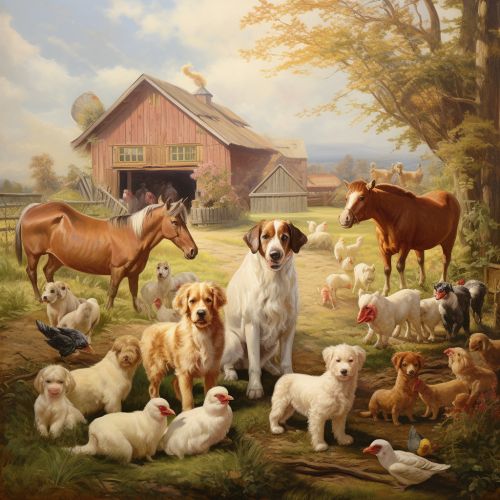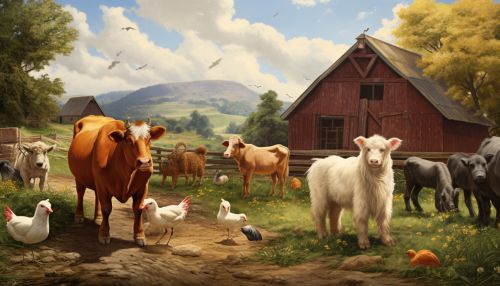Domestication
Origins of Domestication
Domestication is a sustained multi-generational relationship in which one group of organisms assumes a significant degree of influence over the reproduction and care of another group to secure a more predictable supply of resources from that second group. The process of domestication involves the alteration of the genetic makeup of plants and animals to make them more beneficial to humans. The domestication of plants and animals marked a significant shift in human history and is considered a major aspect of the Neolithic Revolution.


Process of Domestication
The process of domestication is a complex one, involving both biological and cultural changes in both the domesticator and the organism being domesticated. The process typically involves a period of initial taming, followed by generations of selective breeding to enhance desirable traits. The process of domestication can be influenced by a variety of factors, including environmental conditions, human needs, and the inherent characteristics of the organism being domesticated.
Domestication of Plants
The domestication of plants, also known as agriculture, began approximately 10,000 years ago in the Fertile Crescent, a region in the Middle East which is now known as the cradle of agriculture. The first plants to be domesticated were wild grains such as wheat and barley. Over time, humans began to selectively breed these plants, leading to the development of modern crops. The domestication of plants allowed for the development of permanent human settlements and the growth of civilization.
Domestication of Animals
The domestication of animals began around the same time as plant domestication. The first animals to be domesticated were likely dogs, which were used for hunting and protection. Over time, other animals such as sheep, goats, cows, and pigs were also domesticated. These animals provided a reliable source of food, clothing, and labor, and their domestication played a critical role in the development of human societies.
Impact of Domestication
The domestication of plants and animals has had a profound impact on human societies. It has allowed for the development of agriculture, which in turn has led to the growth of civilizations and the advancement of technology. However, domestication has also had negative impacts, including the spread of diseases from animals to humans, environmental degradation, and the loss of biodiversity.
